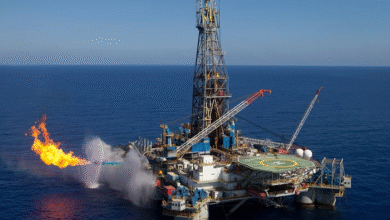Oil & gas: We missed chance to maximize benefits – Jantuah

Lawyer and former Chairman of the Public Interest and Accountability Committee, Mr Kwame Jantuah says Ghana failed to put the proper structures in place to derive long term benefits from the production and commercialisation of its oil and gas industry.
Speaking after the launch of the 2023 annual report of PIAC Mr Jantuah attributed the decline in crude oil production to factors including the normal peaking of oil reserves and the lack of a robust local content blue print which could have ensured basic transfer of technical know-how.
He explained that the oil industry is one that is finite. So “when you start, you peak, then you come to a plateau and then you start dipping. And we have peaked in certain areas.”
“We haven’t discovered more oil fields. So definitely, the little we have will definitely get finished because it’s a finite product. But one of the challenges is the fact that renewable energy has also come in and those who would invest in oil don’t want to invest again,” Mr Jantuah explained.
He recalled that one of the major things that came up when Ghana started drilling oil was local content.
“The issue was how to get local companies to be part and parcel of this. And some of us said, shallow water, let’s train our companies, one of the things that has affected us is that we did the oil industry back to front. We looked at the finances before putting the companies in. So it has come to affect us.
According to the Former PIAC boss, mostly, it will take 10 years from exploration to production and within those 10 years, “what you do is that you train your local companies to get into the industry so that they can carry on. But we did it the other way around.”
Ghana’s crude oil production declined for the fourth consecutive year in 2023 dropping from a high of 71.44 million barrels in 2019 to 48.25 million barrels in 2023 representing a decrease of some 23.19 million barrels.
The volume of 71.44 million barrels produced in 2019 declined first to 66.93million barrels in 2020, a difference of 4.5million barrels. It declined further to 55.05 million barrels in 2021 (17.75%) and then to 51,756,481 barrels in 2022 (5.98%). The average decline over the three-year period stood at 10 percent.
The decline is coupled with the fact that the country has failed in the past six years to sign a new petroleum agreement.
According to the 2023 annual report of the Public Interest and Accountability (PIAC), the last time an agreement was signed was in 2018.
The report disclosed that there were no drilling activities in the TEN, SGN and Cape three point
For the Sankofa Gye-Nyame (SGN) field, the marginal decline was attributed mainly to the natural field decline after attaining peak production. Thus, the decline of total oil production in Ghana is mainly attributable to the rapid unexpected production decline of the TEN field.




